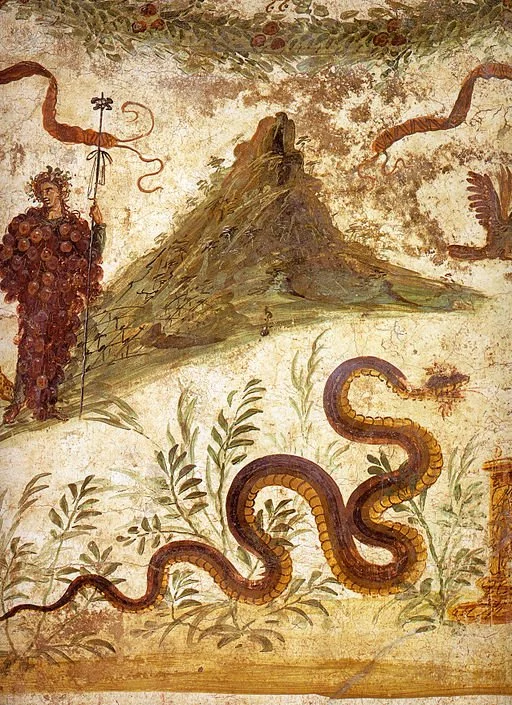Plans for Pompeii winery announced
Pompeii’s Ancient Vineyards Reborn: A New Chapter in Wine and History ( or an old one re started )
In an ambitious fusion of archaeology, agriculture, and oenology, the Tenute Capaldo Group— This groundbreaking collaboration aims to transform six hectares of land within the UNESCO World Heritage Site into a fully organic vineyard, blending cutting-edge ( define cutting edge ) viticulture with a deep respect for Pompeii’s storied past , hopefully this will be natural. So probably won’t be natural or respect wine making in 50AD.
The project, decades in the making, builds on extensive research conducted since the 1990s by the park’s Applied Research Laboratory. These botanical studies have meticulously analyzed the vineyards of ancient Pompeii, uncovering their historical and scientific significance, as well as the winemaking techniques and dietary habits of the city’s inhabitants before the catastrophic eruption of Mount Vesuvius in 79 AD. “The vineyards were enhanced with the aim of recounting the story of the ancient city and making it known from different aspects,” explained Gabriel Zuchtriegel, director of the Pompeii Archaeological Park. Today, this initiative is part of a broader “archaeo-farming” vision that includes the cultivation of olive trees and social farming projects under the park’s “social and cultural farm” framework.
The vineyard will initially focus on two grape varieties championed by Feudi di San Gregorio in Campania: Greco and Aglianico. These will be cultivated using 100% organic methods, with the dual purpose of educating visitors about ancient viticultural practices and producing high-quality wine. Leading the scientific charge is Professor Attilio Scienza of the University of Milan, one of Italy’s foremost oenological experts, who is collaborating with the park’s archaeologists and Feudi di San Gregorio’s production manager, Pierpaolo Sirch, an internationally acclaimed agronomist.
For Antonio Capaldo, president of Feudi di San Gregorio, the project is about more than just wine—it’s a mission to breathe new life into Pompeii’s historical roots. “We want to revive Pompeii not only as a place of research and knowledge, but also as a center of production and exchange,” he said. Acknowledging the significant time and investment required, Capaldo emphasized a long-term vision: “Having the courage to embark on new journeys and looking at this ambitious historic project with new eyes unites our vision with that of the park. This is not about immediate economic returns but ensuring a sustainable future for generations to come.”
A wall painting in the House of the Centenary features the earliest known representation of Vesuvius
The winery will eventually feature dedicated winemaking and aging facilities within the park, completing a full production cycle on-site. This “archaeological vineyard” builds on years of experience with existing vineyards and aims to expand beyond its initial six-hectare footprint. The partnership exemplifies a unique model of public-private collaboration, with the Tenute Capaldo Group bringing its expertise in viticulture and territorial valorization—honed over nearly 40 years of working with indigenous Campania varieties like Taurasi—to complement the park’s historical and scientific resources.




